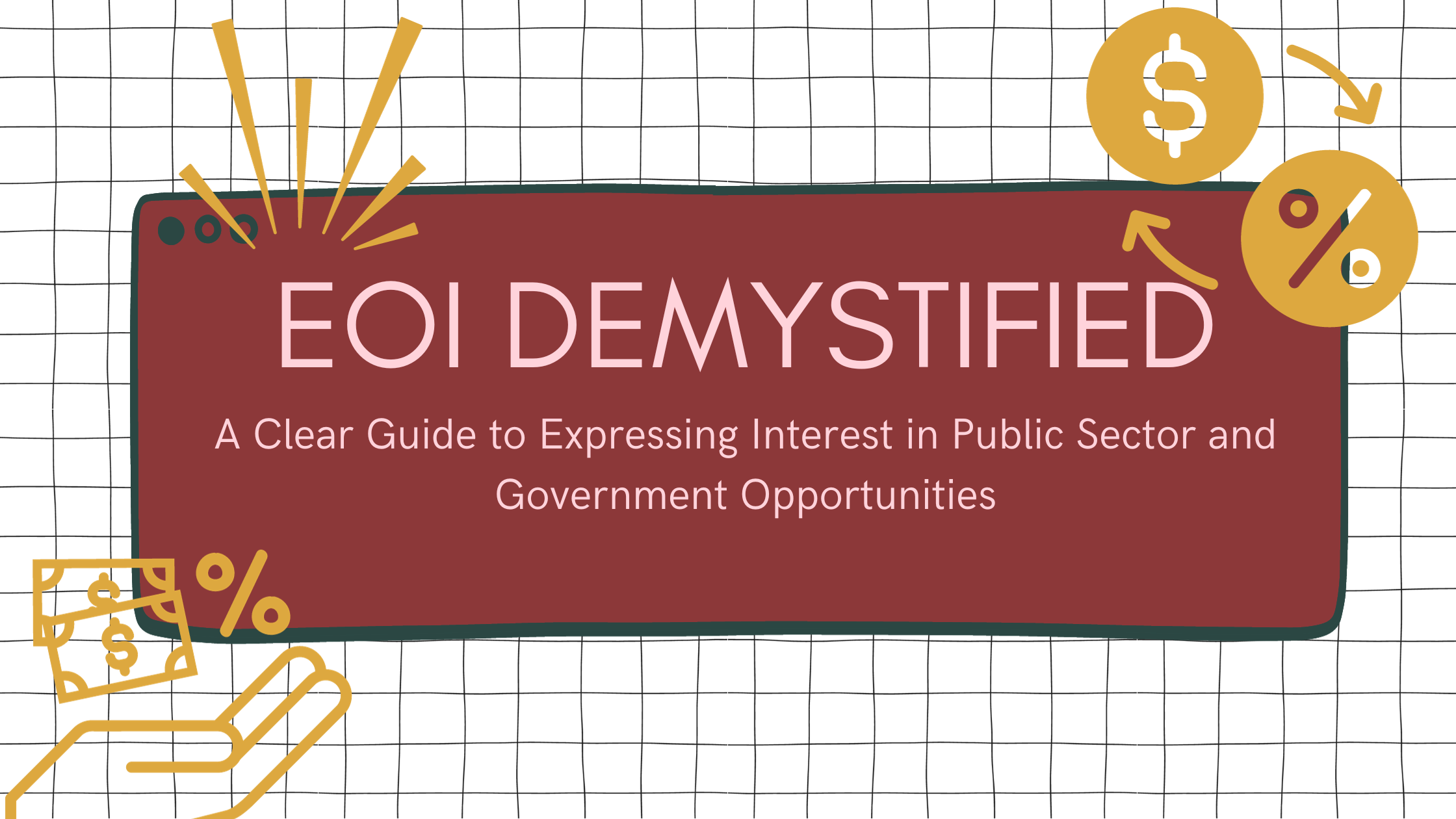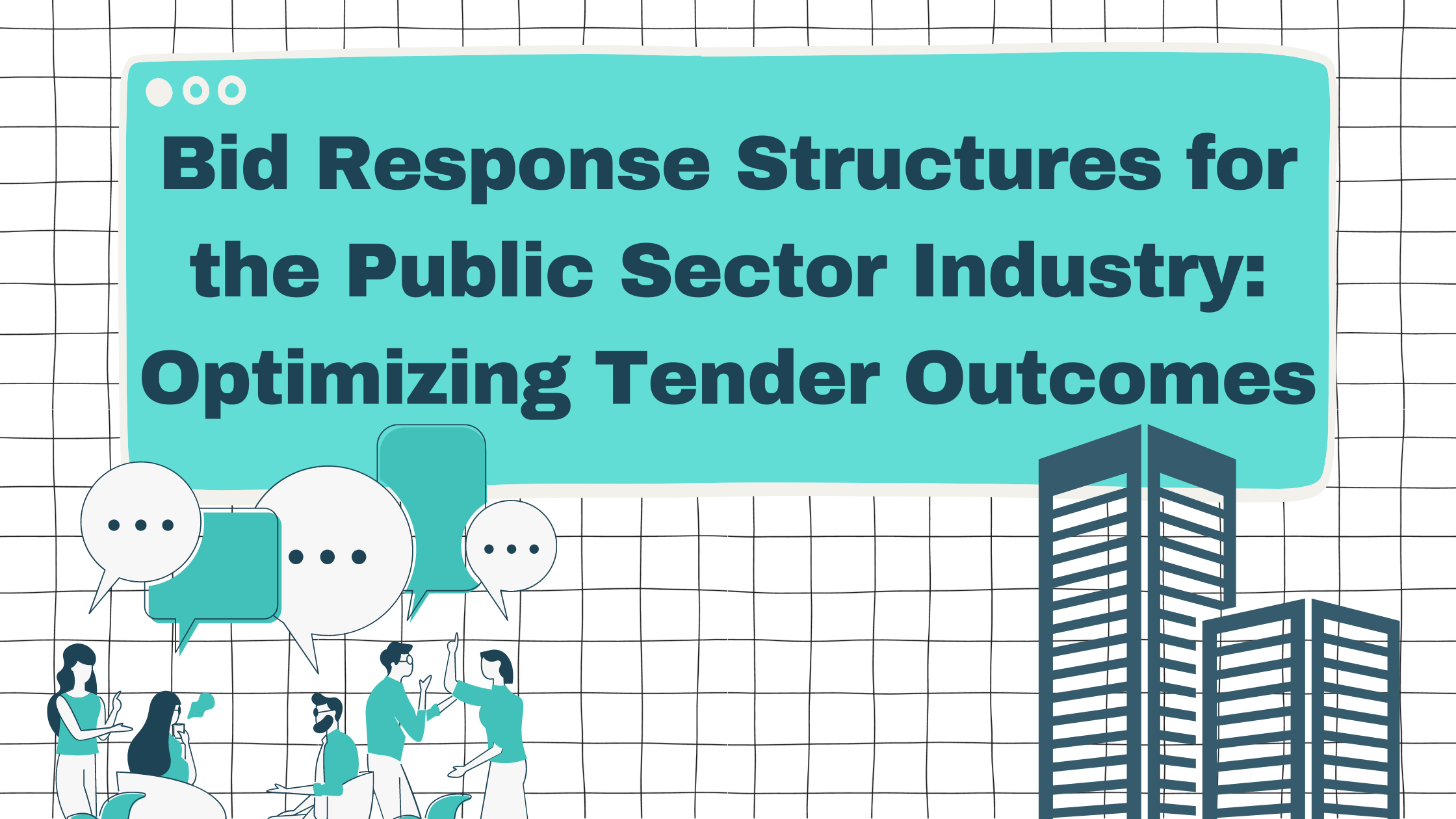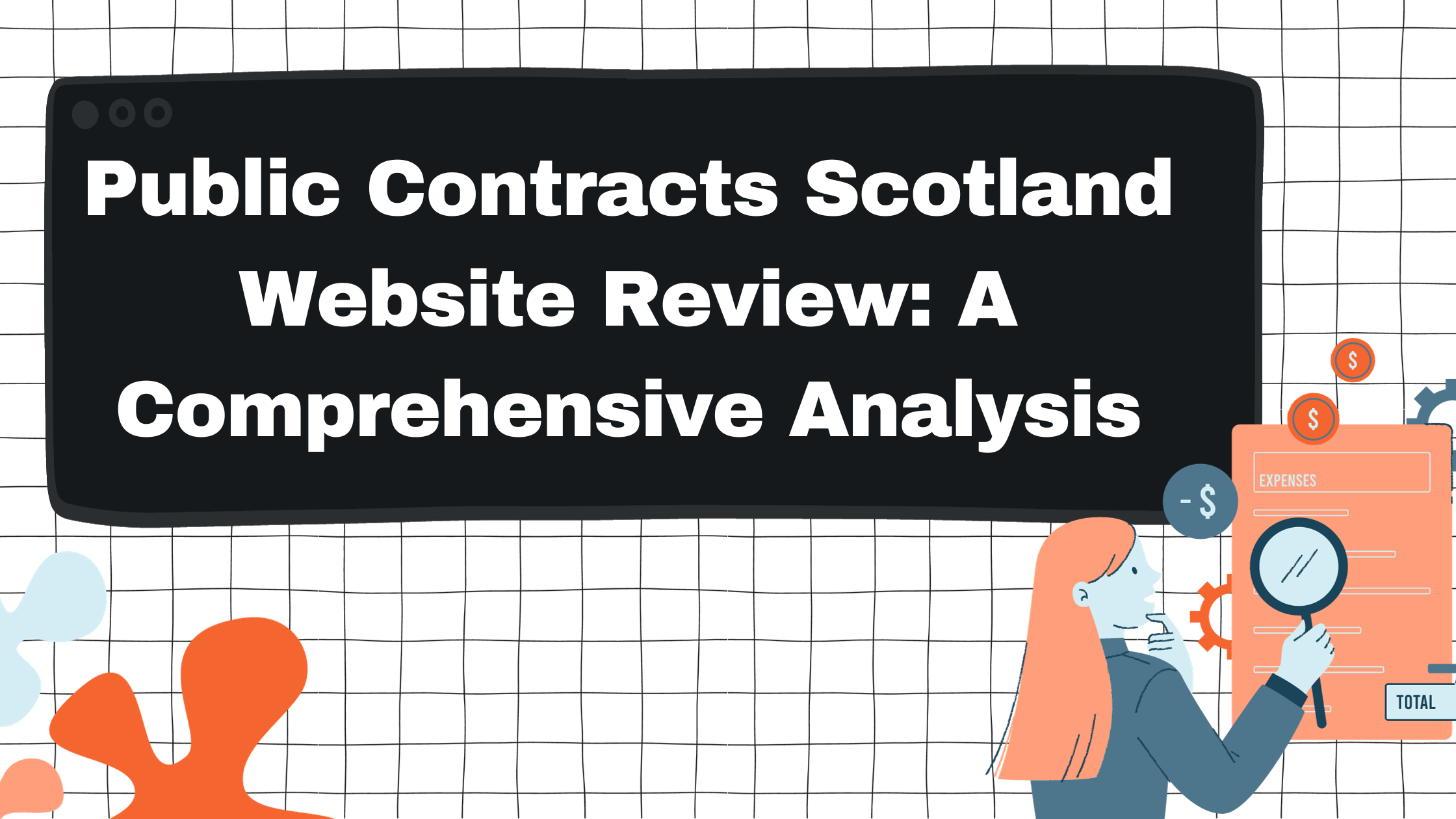Optimized RFP and Proposal Writing Services for Winning Government Contracts

Need Help with Your Bid?
Get in touch by filling out the form and one of our advisors will be in contact.
Contact UsBest Government Spend Categories to Bid for: Strategies for Successful Contract Acquisitions
Securing government contracts can be a lucrative opportunity for businesses seeking stable and potentially long-term engagements. When looking at the landscape of government spending, it's essential to identify which public sector spend categories are not only growing but also where the government is actively seeking suppliers. This information helps you focus on bids that align with your business strengths and can lead to successful procurement outcomes.

Understanding the dynamics of public procurement provides a significant advantage. Each sector within government spending has unique needs and procurement processes. By familiarizing yourself with the common areas of spend and the strategies involved in bidding, you can better navigate the system, thus increasing your chances of securing a contract. In addition, being up-to-date on the latest procurement trends and government investment areas can help you tailor your offerings to meet the demands of the public sector effectively.
Key Takeaways
- Identifying growing public sector spend categories can direct your bidding efforts more productively.
- Knowledge of procurement processes enhances your ability to secure government contracts.
- Staying informed on procurement trends allows you to align your business offerings with public sector needs.
Understanding Government Procurement
In the landscape of government procurement, it's crucial for you to discern the differences and details regarding spend categories within both central and local government sectors. Your success in bidding hinges on a deep comprehension of their procurement strategy, allocated budgets, and the fiscal timelines they follow, which are typically aligned with the financial year.
Central Government Spend
The central government directs national strategy and oversees significant budgetary allocations. In this sphere, entities operate under departmental expenditure limits (DEL) for planned spending and annually managed expenditure (AME) for more volatile and less predictable costs. The DEL is mostly composed of administration costs, program spending, and capital investment. The total managed expenditure (TME) merges both these limits and represents the overall resources allocated for the central government's fiscal plans within the financial year. When you target central government contracts, align your proposals with their strategic objectives and demonstrate value for national-scale projects.
Local Government Expenditures
On the other end, local government entities manage community-specific projects with a focus on addressing the immediate needs of the regions they govern. Their expenditures are often detailed in local budgets and cover a range of services from infrastructure to education. The financial data is commonly made available through national statistics, offering transparency and insights into where your bidding efforts might be most effective. Unlike the central government, local governments might have more flexibility but work with tighter budgets, demanding cost-efficient solutions from your bids.
Key Sectors for Investment and Opportunities
In navigating the landscape of public sector contracts, your focus on sectors with substantial government expenditure is crucial. These key sectors offer significant opportunities due to their important role in public welfare and the continuous demand for innovation and improvements.
Healthcare and Social Care
The healthcare sector, particularly tied to the NHS, is a prime area for investment opportunities. Your potential to secure contracts in this sector lies in the growing demand for health services and social care. With an emphasis on improving patient care and systemic upgrades, companies well-versed in health technology and supply chain management stand to benefit.
- Key Opportunities:
- Digital health solutions
- Social care services enhancement
- Medical equipment and pharmaceuticals supply
Infrastructure and ICT
Your insight into Infrastructure and ICT (Information and Communications Technology) can unlock diverse opportunities, as these are pivotal in modernizing public services. Major investments are channeled towards upgrading existing infrastructure and integrating cutting-edge ICT to streamline operations and improve efficiency.
- Key Opportunities:
- Construction projects for state facilities
- Network and cybersecurity solutions for public sector
- Smart city technologies and data management systems
Education and Public Services
Investment in education reflects commitment to future generations, with funding often prioritized for both educational facilities and services. Your engagement in this sector could involve providing educational technology, resources for teachers, and infrastructure improvements for public sector contracts.
- Key Opportunities:
- Educational tools and digital platforms
- Supply of materials and resources for educational institutions
- Development and maintenance of school infrastructure
Your understanding of these sectors and readiness to align your offerings with public needs can set the stage for successful bids for government contracts.
Procurement Processes and Strategies
In the complex landscape of government procurement, you'll benefit from knowing the avenues of effective tendering and the nuances of contract management. These strategies are pivotal for securing and maintaining successful contracts with governmental entities.
Tendering Strategies
When you are looking to bid for government spend categories, it is essential to familiarize yourself with various tendering procedures. There are typically five procurement procedures used, including the open procedure and the competitive dialogue, each with specific use cases. The Crown Commercial Service outlines these options to aid in selecting the most suitable route for your business.
A strategic approach to tendering involves:
- Utilizing Contracts Finder, a platform that lists opportunities, upcoming contracts, and contract awards. This can help you identify the most relevant opportunities.
- Registering for a Dynamic Purchasing System (DPS), which is a flexible and open market solution designed for the procurement of goods and services.
Contract Management
Once awarded a contract, the focus shifts to:
Effective Delivery:
- Ensuring that goods or services are delivered in compliance with contract terms.
- Maintaining communication with procurement officers for the duration of the contract.
Performance Monitoring:
- Regularly assessing your performance against contractual obligations.
- Actively seeking feedback to improve and adapt your service delivery.
Remember, managing contracts efficiently is as critical as winning them. Good contract management can lead to long-term relationships with the government sector and pave the way for future contract opportunities.
Overcoming Challenges in Government Spending
In the landscape of government spending, you're up against the dual pressures of delivering value for money and mitigating risks such as fraud and error. Here's how you can better navigate these challenges.
Ensuring Value for Money
To ensure value for money, your primary focus should be on effectiveness, efficiency, and economy. This means carefully considering the cost-benefit ratio of spending initiatives. Rigorous monitoring and evaluation procedures allow you to assess whether government projects meet their objectives and support growth without incurring undue costs. In the face of inflation and fluctuating demand, maintaining flexibility in fiscal policies is essential to adapt and reallocate funds where they are most needed.
- Evaluate projects with clear performance indicators.
- Implement adaptive strategies to respond to economic changes.
Combating Fraud and Error
Reducing fraud and error in government spending requires stringent controls and a proactive stance. By strengthening audit processes and oversight mechanisms, you can identify discrepancies and prevent losses that affect the budget and erode public trust. Leveraging technology to improve data analysis can detect irregular patterns and potential fraud before they become systemic issues. Continuous training of personnel involved in spending oversight is vital to remain current with the latest fraud detection techniques.
- Employ advanced analytics for real-time fraud detection.
- Conduct regular training sessions for staff on anti-fraud measures.
Promoting Sustainable and Ethical Spending
As you explore opportunities within government spending, focusing on sustainable and ethical practices positions you strongly in growth sectors. You'll find that government contracts are increasingly weighted towards providers who champion climate change initiatives and socially responsible procurement.
Climate Change Initiatives
When bidding for government contracts, you should prioritize your involvement in climate change initiatives. The government allocates substantial funding towards reducing the carbon footprint and promoting sustainable growth. Key categories include renewable energy projects, green infrastructure, and research grants focused on environmental innovations. Aligning your business with these efforts not only helps combat climate change but also prepares you for future public spending trends towards sustainability.
- Renewable Energy Projects: Solar, wind, hydroelectric
- Green Infrastructure: Energy-efficient buildings, low-carbon transportation
- Research in Environmental Innovation: Grants for sustainable technologies
Socially Responsible Procurement
Your approach to procurement can also reflect ethical practices. Government entities are emphasizing the importance of ethical procurement, which means they are looking for suppliers who provide fair labor practices, equitable trade, and sustainable sourcing. Engaging in partnerships that promote these values can place you at a competitive advantage.
- Fair Labor Practices: Compliance with labor standards, no child or forced labor
- Equitable Trade: Partnerships with local businesses and marginalized communities
- Sustainable Sourcing: Use of recycled materials, focus on supply chain sustainability
When you engage in collaboration with partners who share a commitment to ethical practices, you elevate your bids. Remember, public spending is not just an economic tool but a lever for sustainable growth and social impact.
Supporting Small and Medium Enterprises (SMEs)
In recent strategic action plans, governments have emphasized the importance of small and medium enterprises (SMEs) as growth engines for the economy. These plans are aimed at boosting private sector diversity and improving national supply chains through competitive practices.
Fostering SME Growth
To promote SME growth, multiple government initiatives emphasize the development of supportive ecosystems. As a stakeholder in this sector, you can leverage these programs to strengthen your position in the market. For example, the Defra SME Action Plan targets the natural environment, food, and farming industry, aiming to foster innovation and sustainability. Also, initiatives like the BEIS SME Action Plan look to empower SMEs through access to finance and markets up to 2025, setting a stable path for growth.
Key Points to Consider for SME Growth:
- Active participation in government-funded training and capacity-building programs
- Utilization of financial incentives and grants specifically earmarked for SMEs
- Exploration of new markets with the help of government trade initiatives
- Engagement with innovation hubs and clusters for collaboration and development
Procurement Inclusion Initiatives
Your SME can also benefit from targeted procurement inclusion initiatives, where governments are committed to diversifying their supply chains by including smaller businesses. The Cabinet Office’s SME Action Plan outlines the ambition to spend with SMEs, aiming to enhance their participation in public procurement. Moreover, the transparency in public spending with SMEs is detailed in the Central Government Spend with SMEs collection, providing data which can assist you in identifying opportunities.
Strategies to Utilize Procurement Initiatives:
- Regularly monitor government portals for procurement opportunities suited to your business
- Understand and comply with the criteria for government contracts to help secure a winning bid
- Align your business with social value priorities, a component increasingly factored into contract awards
- Build a track record of performance and reliability to strengthen future bids
Frequently Asked Questions
In this section, you'll find succinct answers to common queries surrounding bidding on government contracts and the specific characteristics that define successful bids within various procurement categories.
What types of framework agreements are commonly used in public sector procurement?
Framework agreements in public sector procurement typically include Single Supplier and Multi-Supplier frameworks. These pre-agreed terms provide a reliable mechanism for sourcing services and products quickly and efficiently.
How can companies identify the easiest government contracts to bid on?
Companies can pinpoint more accessible contracts by utilizing tools like the Levelling Up Fund Round 2: frequently asked questions, which provide insights into procurement processes, and by targeting contracts with lower value, as they often have less competition.
Which spend categories are most prominent in government procurement?
Prominent spend categories in government procurement include IT services, healthcare, infrastructure, and defense. For definitions and classifications of spend categories, government resources such as Common Areas of Spend definitions offer detailed breakdowns.
What does best value mean in the context of government procurement?
Best value in government procurement refers to achieving the most advantageous balance of cost, quality, and sustainability. This is outlined in the Public procurement policy, which emphasizes value over price alone.
What are considered best-in-class contracts, and how do they differ from other agreements?
Best-in-class contracts are agreements recognized for their exceptional terms in quality, price, and performance. Unlike standard contracts, they often result from comprehensive benchmarking and represent the highest procurement standards.
How can businesses successfully navigate and utilize public sector procurement frameworks?
To successfully navigate public sector procurement frameworks, businesses should familiarize themselves with the procurement guidelines, like the A Guide to Reserving Below Threshold Procurements, and understand the application process, deadlines, and evaluation criteria specific to each framework.
Ready to start your search?
Get in touch by filling out the form to the right and one of our advisors will curate a personalised selection for you.
Get in touchBlogs. Guides. Helpful advice.

Mastering Proposal and RFP Writing for Government and Public Sector Opportunities

Proposal and RFP Writing Services: Enhancing Public Sector Tender Outcomes

.svg)